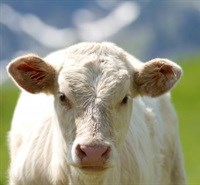
Related
Top stories






More news


Marketing & Media
Ads are coming to AI. Does that really have to be such a bad thing?














Communal livestock farmers in the uMkhanyakude District took part in a successful cattle auction run by the Jozini and uMhlabuyalingana Livestock Associations recently. The auction saw 35 of the 95 cattle sold, net a whopping R176,200. The buyers were mainly abattoir livestock brokers from Somkhele, Mtubatuba, Mandeni and Cato Ridge.
This was the second livestock sale to be held at the newly constructed KwaJona sales yard in Jozini, the first was held in March this year when 16 cattle were sold. uMkhanyakude state veterinarian, Dr Lundi Ntantiso, said that with more communal livestock owners getting involved in auctions they are being exposed to the business side of farming.
"We feel that livestock owners still need to be taught how a sale system works. Some things are basic information such as the fact that young steers with good weight fetch more than the heavy old beasts," Dr Ntantiso said. The State Vet explained that the frequency of auctions was determined by demand and evaluated during meetings at the dip tanks between the state vet and livestock associations.
"Requests from individual owners who want to sell are tallied up. We then identify cattle which they want to sell. This is followed up by taking blood samples which are sent to the Onderspoort laboratory in Pretoria where they get tested for FMD (Foot and Mouth disease). The results are received within one week.
Thereafter, we set a date for the auction, send invitations and organise," Dr Ntantiso added. He said that testing for FMD was crucial since the World Organisation on Animal Health (OIE) lifted the ban in February this year on the export of cloven-hoofed animals and their products. The ban had been imposed after the outbreak of FMD in the uMkhanyakude District Municipality in 2011.
According to Dr Ntantiso, the KwaZulu-Natal (KZN) Department of Agriculture and Rural Development (KZN DARD) also looked for a professional company to run the auction. He said the commercialisation of the communal livestock system was one of the aims of the department and this would have a major spinoff for an area like uMkhanyakude, which has a large cattle population. According to the 2014 livestock census, there was a total of 160,892 stock in the area estimated to be worth between R900 million and R1.3 billion.
The department's livestock commercialisation programme has seen two auction yards built - one at KwaJona and the other in Phelandaba as well as the provision of the required infrastructure such as dip tanks, feedlots, handling facilities and fencing. KZN DARD is currently constructing a R60 million state of the art abattoir in Bambanana, uMkhanyakude which is expected to be operational next year.
Dr Ntantiso said they were also focused on improving the genetic stock of the herds. In his Budget Speech, KZN DARD MEC, Mr Cyril Xaba spoke about an "Ox initiative." MEC Xaba said that in this programme, extension services actively promoted the castration of young bulls towards improving the genetics of the herd through the use of selected bulls and reducing the risk of in-breeding."
Dr Ntantiso added that the livestock commercialisation programme was also aimed at boosting the agro-processing potential of the livestock industry and building South Africa's export capacity in red meat, hides, tanning and leather goods. MEC Xaba had also noted in his Budget Speech that South Africa was a net importer of meat while 40% of the South African livestock remained on the periphery of the market.

AllAfrica is a voice of, by and about Africa - aggregating, producing and distributing 2000 news and information items daily from over 130 African news organisations and our own reporters to an African and global public. We operate from Cape Town, Dakar, Lagos, Monrovia, Nairobi and Washington DC.
Go to: http://allafrica.com/